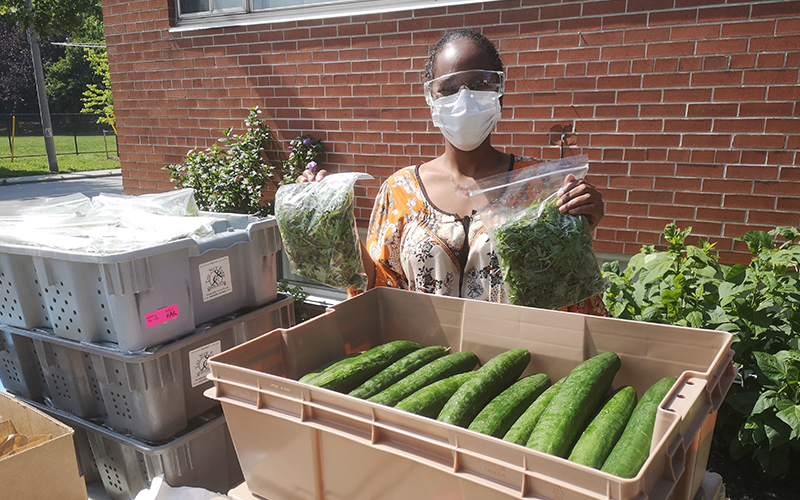Over the course of the pandemic, we have seen a persistent and rising need for access to food across the communities we serve. The pandemic compounded the struggles of those already experiencing food insecurity and also affected many more residents for the first time. Daily Bread’s Who’s Hungry 2021 report revealed that there were “1.45 million visits” to Toronto food banks last year, the highest number of visits ever recorded in Toronto. “This represents a 47% increase…compared to the year prior” and is 1.5 times higher than the previous record set in 2010, at the peak of the financial crisis.
The impacts of food insecurity are evident in higher rates of chronic disease, poor mental health, strained relationships, and barriers to social and employment opportunities. As summarized in Community Food Centres Canada’s 2021 Beyond Hunger report, “the impacts of food insecurity go beyond a lack of food. Food insecurity makes people sick, breaks down relationships, makes it harder to get stable work, and to fully participate in society.”
In response to this growing need, SRCHC took a cross-organizational and collaborative approach and formed a Food Security Working Group. This group engaged staff in a range of roles across the organization to strategically create new processes and share food-related funding sources and resources. A variety of strategies and interventions were also developed to meet the unique needs of clients, including takeaway snacks and meals, which were served at all sites and on street outreach; grocery gift cards; produce-box deliveries; and grocery deliveries to homebound clients and those isolating due to COVID-19. This multi-pronged approach allowed teams to connect clients to the emergency food support best suited to their needs.
With the growth and development of the Harmony Community Food Centre, we have also been able to provide a variety of programs to address food access as well as food-skill development, community engagement, and social connection. Examples include an affordable produce market, a food-focused program for youth, virtual cooking programs for all ages, and gardening programs. Being part of Community Food Centres Canada’s nation-wide network also enabled SRCHC to participate in The Big Social fundraising campaign, access funding opportunities, engage in national conversations around policy change, be part of the knowledge swap with other food organizations, and co-design Mind Your Food, a food-focused youth program that helps strengthen mental health protective factors.
Other partnerships also continue to play a key role in our food work, including East Toronto Health Partners, the East End Food Advocacy Group, and the East York Don Valley Cluster. These partnerships, and others, provided funding opportunities, resource sharing, knowledge exchange, and a strengthened approach to providing dignified food access to those who need it in Toronto’s east end.
Addressing ongoing food insecurity in the east end will take a determined, collaborative effort with our partners and the strength of our community. We will continue to make food a priority because we believe that food is power, and that everyone deserves that power.

